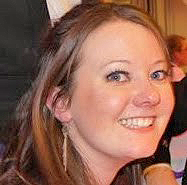For many pediatric cancer patients and their families, “scanxiety” is a very real and very scary feeling – the worry that can precede scans before treatment, and the uncertainty stemming from scans after treatment is completed.
Scans following radiation therapy often can provide reassurance – everything looks great, nothing new or unknown is showing up – or induce anxiety if they show… something.
Is it inflammation or known disease or inactive scar tissue that developed as a result of treatment? Equivocal findings, or findings that could be open to multiple interpretations, can be anxiety-inducing for not only patients and their families, but also clinicians. Do equivocal findings mean the disease is going to come back?
Recently published research shows that equivocal imaging findings after radiation therapy in pediatric Ewing sarcoma (EWS) and rhabdomyosarcoma (RMS) do not predict a higher risk of local disease relapse.
“In patients who have received radiation therapy for local control of known disease sites, equivocal findings on scans that are performed after therapy can be extremely unsettling,” says Sarah Milgrom, MD, an associate professor of radiation oncology in the University of Colorado School of Medicine. “That’s often the first question we hear: Does this mean the cancer is going to come back?”
Analyzing patient data
To better understand whether equivocal scan findings were associated with a higher risk for local disease recurrence, Milgrom and Lorna McLean-Thomas, MA, a senior professional research assistant in radiation oncology, led a retrospective data analysis of pediatric EWS and RMS patients treated at Children’s Hospital Colorado and UCHealth University of Colorado Hospital.
The patients had received radiation therapy for local control of the disease and received diagnostic imaging within 13 weeks of completing all treatment, including chemotherapy. Their post-therapy scans were classified as positive, meaning there was definite residual disease in the area covered by radiation therapy; negative, meaning no evidence of residual disease in that area; or equivocal, in which no determination could be made.
Post-therapy imaging included PET/CT or CT scans and MRI. Of the 68 patients who met the study criteria, 16 – or 24% – had equivocal scan findings. The research primarily looked at the time between a scan and local progression of disease.
Milgrom and McLean-Thomas aimed to assess the value of initial post-treatment scans in predicting time to local progression and used negative predictive value (NPV), or the likelihood that negative test results indicate the person doesn’t have the disease, and positive predictive value (PPV), or the probability that a patient with a positive test result actually has the disease.
They found that when equivocal findings were categorized with negative scan results, the NPV was very good at 90%. When they were categorized with positive results, the PPV was poor: 12%. Furthermore, the risk of local progression was no different in patients with equivocal scan results compared to patients with negative scan results.
Establishing a new baseline
“We saw that in some of these cases, providers would get additional scans or evaluate that area more closely than they would normally,” says Milgrom, who treats patients at Children’s Hospital Colorado and UCHealth University of Colorado Hospital. “In not a single one of the cases where the provider did something extra to evaluate the area did that yield information about recurrence. I absolutely understand clinicians wanting reassurance in the setting of equivocal imaging findings, but that additional testing didn’t provide any deeper insight.”
With data showing that equivocal scan findings do not mean greater risk of cancer recurrence, “that helps us have more meaningful conversations with families that this scan isn’t necessarily going to tell us everything that we wish it would,” Milgrom says. “We can talk about how it’s giving us a new baseline and helping us know how to move forward in the future.
“I think pediatric cancer patients and families adjust to living with a degree of uncertainty, but it’s absolutely understandable to want a 'yes-or-no' answer. Hopefully these results can provide some reassurance for both patients and their doctors.”





